A textbook case of excellence, Department of Physiology and Biophysics writes 70+ years of history
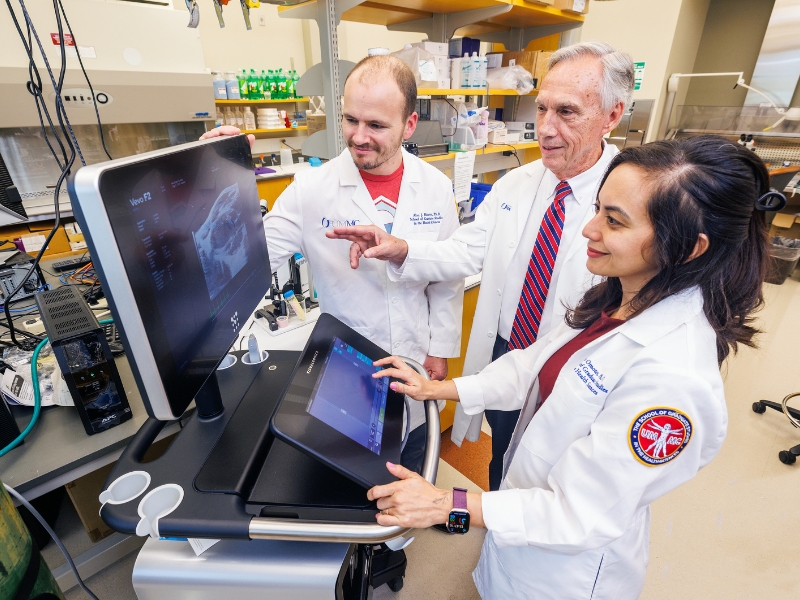
Editor’s Note: To commemorate the University of Mississippi Medical Center’s 70th anniversary, we will feature a series of stories throughout the year on the original School of Medicine departments when the Medical Center opened in 1955.
When Dr. Arthur C. Guyton died on a spring day more than 20 years ago, his survivors struggled to express the scale of their grief.
Losing Guyton felt “like a vast hole in the universe,” said Dr. Wallace Conerly, vice chancellor of the University of Mississippi Medical Center at the time.
Beginning in 1955, Guyton had been the only chair of what is now the UMMC Department of Physiology and Biophysics until he retired from that position in 1989; through his lectures, scientific investigations and a textbook that is still enlightening students across the planet, he as much as anyone defined cardiovascular research and medical education.
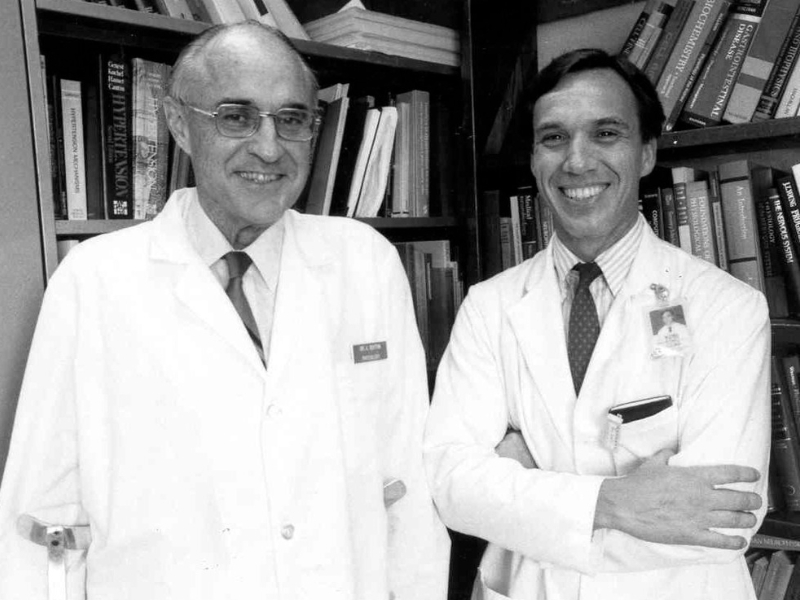
For the past 36 years, his successor, Dr. John E. Hall, has chaired a department that has done its best to fill the Guyton-less void with a mountain of sustained successes.
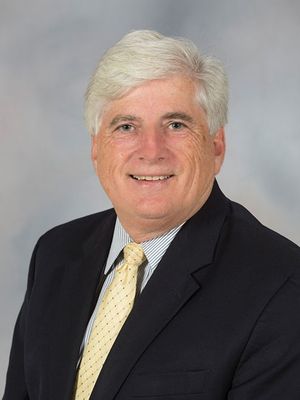
“You can’t find another department in the U.S. that has had only two chairs – no one else comes close that to that – which shows you the quality of the leadership and the faculty,” said Dr. Joey Granger, a Billy S. Guyton Distinguished Professor of Physiology and Medicine, professor of physiology and biophysics and former dean of the School of Graduate Studies in the Health Sciences.
“Dr. Guyton built that foundation and Dr. Hall enhanced it and maintained it.”
The quality is so abiding that Dr. Norma Ojeda, UMMC chair of advanced biomedical education, calls it “the most iconic department in this institution.”
Here’s a smattering of deeds that made the department iconic:
- Rocked the medical world by showing that the main long-term controller of blood pressure is the kidney. Guyton and the late Dr. Tom Coleman did so with a cardiovascular/renal model that expanded and is now more than 20 times larger than when it was published in 1972; it is still used across the globe.
- Provided the basic scientific foundation for discoveries about obesity, blood pressure, kidney disease, heart failure, preeclampsia and more.
- Invented the instrumentation for measuring the oxygen level in circulating blood. Guyton and his colleagues did this; the late Dr. Albert “Pete” Shepherd Jr. refined the system by developing the AVOXimeter – used to for monitoring patients with heart failure and more.
- Performed groundbreaking studies leading to treatments for hypertension, kidney disease, pulmonary edema and other conditions.
- Produced the best-selling Guyton and Hall Textbook of Medical Physiology. Guyton wrote and edited the first eight editions. Hall joined him afterward and revised it alone after Guyton’s death; on the 14th edition, Hall’s son, Dr. Michael E. Hall, UMMC professor and chair of medicine, began contributing.
Great expectations
An Oxford native, Guyton was the son of Dr. Billy S. Guyton, the namesake of the distinguished UMMC professorships and the medical school dean who helped ensure the Depression-era survival of the school when it was a two-year program at the University of Mississippi.
Partially paralyzed from polio as an adult, Arthur Guyton defied the disability, overcoming doubts about his health to become department chair in 1948 at Ole Miss; in 1955, he and the medical school relocated to the newly-opened Medical Center in Jackson.
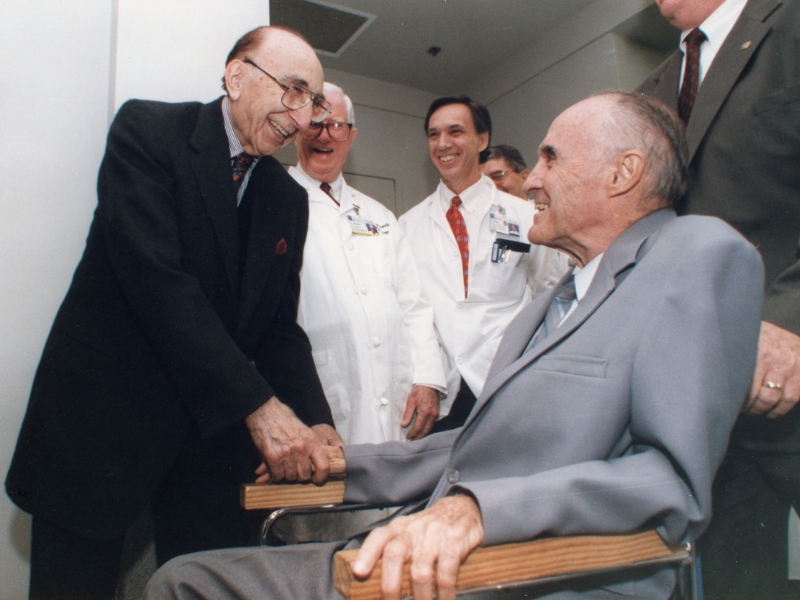
Among his inventions was the first motorized wheelchair controlled by a joystick, along with other aids for disabled patients. Guyton used such a wheelchair, crutches and his native genius to navigate life and a career course strewn with accolades.
Much of his and Coleman’s computational work has been carried on by current faculty, including Hall, Dr. John Clemmer, assistant professor of physiology and biophysics, and Dr. Robert Hester, Billy S. Guyton Distinguished Professor, professor of physiology and biophysics.
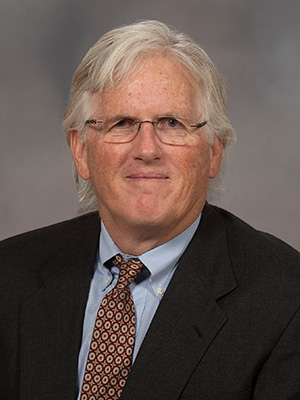
Hester also claims Guyton as his mentor. “I’ve done my best to try to live up to expectations,” said Hester, who has been a Medical Center figure for 47 years, total, as a student or researcher.
When Hester first arrived at UMMC as a graduate student in 1976, the department “had a worldwide reputation for using computer models in physiology research,” wrote Janis Quinn in her 2005 Medical Center history, “Promises Kept.”
“In the mid-1970s … the department hosted an international meeting of prominent scientists from many countries who wanted to learn more about what Guyton and his colleagues were doing.”
Today, Guyton’s heirs, including his sole successor as chair, are still educating the world.
The fame of Hall
As a college undergraduate, Hall discovered Guyton’s textbook while studying physiology. This Road to Damascus moment helped convert him into a physiologist.
Decades later, he was asked to apply for the chair soon to be vacated by his mentor.
“Following Dr. Guyton would be a lot like following Bear Bryant at Alabama [as head football coach],” Hall once remarked.
Still, he compiled a winning record. Hall is the founding director of the Mississippi Center for Obesity Research and the Cardiovascular-Renal Research Center. For eight years, he was also the Medical Center’s associate vice chancellor for research.
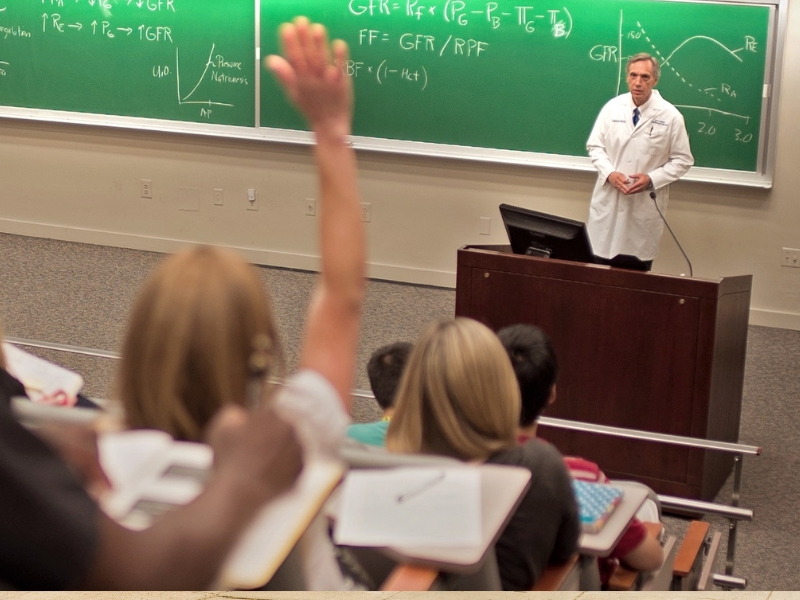
His resume radiates with honors, including 2014 SEC Professor of the Year and the Arthur C. Guyton Distinguished Lectureship Award.
His department has produced at least 10 presidents of the American Physiological Society. “That’s more than any other U.S. institution over the past 125 years,” Granger said.
Those leaders include Guyton; Hall; Granger; Dr. Jane Reckelhoff, now professor of pharmacology/toxicology; and current APS president, Hester, who founded a company that specializes in products simulating human physiology: descendants of Guyton and Coleman’s model.
Officially retired, Hester still teaches occasionally and chairs several UMMC committees. One of the most profound changes he has witnessed in his arena is the rise of technology that “gives you the ability to measure things you could never measure before,” he said.
“But we still do cutting-edge research that tells you how to do be healthy and how to prevent disease.”
Research that, in Granger’s words, “brings it back to clinicians and the patient.”
Pull up a chair
For his part, Granger has helped the Medical Center become one of the country’s top five National Institutes of Health-funded institutions in the area of preeclampsia – the subject of research he began decades ago. He has attracted more than $50 million in research funding and published more than 300 manuscripts.
Granger’s colleagues include Dr. Heather Drummond, professor of physiology and biophysics, who excels in research on vascular systems, and Dr. Barbara Alexander – another Guyton Distinguished Professor known for, among other things, investigations of the mechanisms that contribute to sex differences in blood pressure in low birth-weight offspring.
For the near future, the department will continue to concentrate on chronic diseases including hypertension, obesity, diabetes, kidney disease, preeclampsia and heart failure, Hall said. “And we hope to continue as one of the pre-eminent departments in the country.”
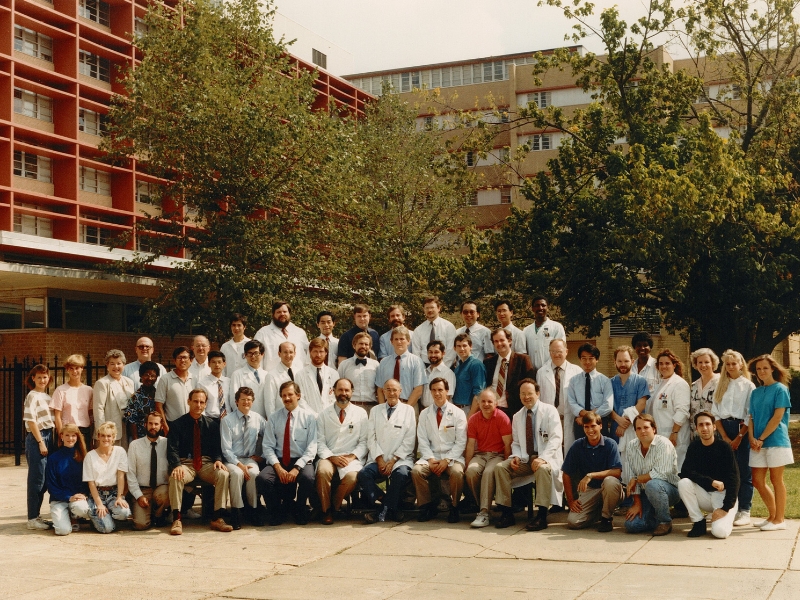
But it will carry on without Hall as chair; he retires from that position next summer, after 37 years as chair and 52 as a faculty member.
“In my opinion, this has been the ultimate chair of all physiology departments in the world,” Hester said. “My hope is that the department’s next chair will also value integrative physiology – how every function, every pathway, works together in the human body.”
That concept is a legacy from Coleman and Guyton – who, in April 2003, died in a traffic accident that also took the life of his wife, Ruth Weigle Guyton.
Among Guyton’s other bequests was this one, as described by Hall in a 2003 tribute: “Dr. Guyton taught us much more than physiology – he taught us life, not so much by what he said, but by his unspoken courage and dedication to the highest standards.”


